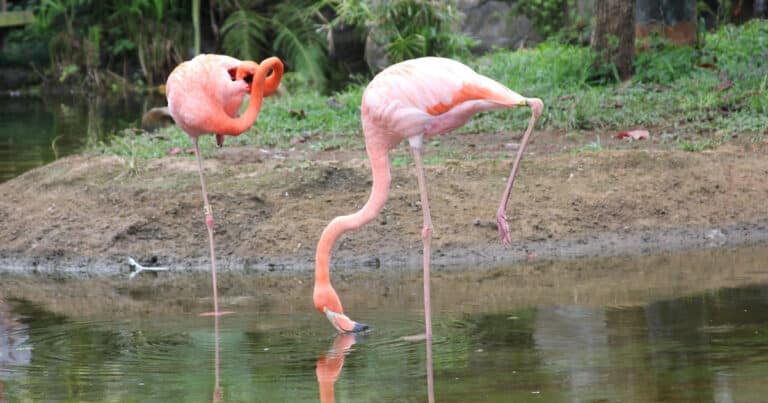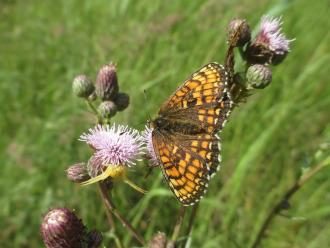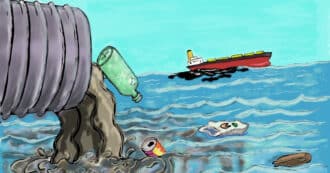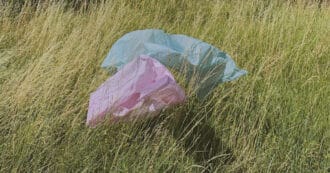By Sydney Cohen – What makes something “balanced”? The term is thrown around a lot in discussions about the environment, but what does it really mean? Ecological balance is achieved when there are no negative effects on the planet. This means that every organism has to have enough resources available for survival and reproduction.
The goal of an ecological balance is to maintain as many species as possible while preventing any from going extinct. Humans need to take care of the natural world they live in by recycling more, using less water and electricity, and reducing pollution which harms wildlife habitats.
The Ecological Balance of Nature
The balance of nature proposes that ecological systems are usually in a stable equilibrium. The theory says that a small change (the size of a particular population) will be corrected by negative feedback. The theory has been used to describe the relationship between ecosystems, the atmosphere, and the world’s weather. It is often depicted as easily disturbed and delicate, while other times portrayed as powerful enough to correct imbalances by itself. The concept is described as “normative”, as well as teleological. However, it has been largely discredited by scientists working in ecology, as it has found that constant disturbances leading to chaotic and dynamic changes are the norm in nature.
Ecological balance involves the relations and interdependencies between living things and their (nonliving) environments. This includes relations between living organisms and non-living environments.
One Species Can Affect The Ecological Balance
All species in an ecosystem each play an important role in keeping the ecosystem running smoothly. You can think of ecosystems like a house of cards, with each card representing a different species. Even if an ecosystem is balanced, that doesn’t mean that no changes ever occur.
The good news is that an ecosystem will typically recover back to a balanced state after a disturbance occurs, but there will always be a disturbance to the ecosystem, like a windstorm or a predator being hunted, a drought reducing the availability of food resources. A disturbance can cause a chain reaction in the entire ecosystem, not just individuals, like removing one species.
Examples of Ecological Balance
The balance of nature is a beautiful thing. It can be found all around us, and if we look closely enough, we will find that it exists in the most unlikely places. There are many examples of ecological balance in the world. We need to have a variety of different types of ecosystems near each other so as not to disrupt any one ecosystem. Another aspect of ecological balance is the concept that everything needs to be balanced within each ecosystem, such as predator and prey or herbivores and carnivores.
An example of ecological balance takes place in Yellowstone National Park, in Wyoming. In Yellowstone National Park, the gray wolf was an important thread keeping the ecosystem balanced. In the 1920s, the government allowed the extermination of the grey wolf. This resulted in the rapid growth of elk populations, and without their primary predator, there was severe overgrazing on aspen and willow trees, that we needed by other animals to thrive. This caused a chain reaction in other animals, as new predators emerged, and various species suffered from the overpopulation of the elk. When the grey wolf population diminished, the local ecosystem began to unravel, becoming unbalanced.
In 1995, ecologists and conservationists recognized the harmful effects of removing the grey wolf from the ecosystem and began to reintroduce the species to restore ecological balance. Now, the biodiversity of Yellowstone National Park is enriched by this balanced ecosystem where all plants and animals are able to thrive.
Climate Change and Ecological Balance
Climate change has a drastic, detrimental effect on the maintenance and stability of ecological balance. In fact, a NASA scientific study on climate change from 2011, predicted that vegetation, organisms, plants, and animals are subject to increased competition for survival with the succession of climate change, from human-produced greenhouse gases as a result of industrial pollution.
The data from the study depicts that “most of Earth’s land that is not covered by ice or desert is projected to undergo at least a 30 percent change in plant cover — changes that will require humans and animals to adapt and often relocate.” Because of this disruption in the stability of various ecosystems around the world, not only does the health of ecosystems suffer, but also the diversity.
How Can We Work to Maintain Ecological Balance?
Many people are unaware of the significance that ecological balance plays in our lives. We live in a society that is completely dependent on natural resources for survival, yet we do not always protect them. There are many things that contribute to an imbalance, and we want to talk about some of them in this article. So, how can we work to maintain ecological balance? There are some ways you can help make the world a more ecologically balanced place!
The Ecological Balance Within Ecosystems
Sewage and agricultural runoff can lead to algae growth in lakes and streams. The growth of algae blocks sunlight, depletes the oxygen in the water, and kills animals that eat on it. Taking steps to reduce pollution from nonpoint sources such as streets and farms will help to maintain the balance of ecosystems, according to the National Institute of Science and Policy (NSPI) and the World Institute for Environmental Studies. Additionally, the conservation of the clean water that we do have is important in order to not exacerbate this resource that is required for life.
Overfishing and habitat destruction create a loss of biodiversity. Minerals, fossil fuels, and other natural resources disappear at an alarming rate. The overuse or destruction of these habitats threatens species with extinction. Efforts to use natural resources in a sustainable manner will help to protect and maintain ecological balance, writes John Defterios, marine ecologist and author.
The Need To Control the Population to Achieve Ecological Balance
Between 1927 and 1987, the Earth’s population increased to 5 billion. By 1999, the total population reached 6 billion, and estimated that nearly 9 billion people will be living on the Earth in 2050. Just as too many fish in fouls your aquarium, too many humans on the planet can upset the ecological balance. Controlling the birth rate through contraception and family planning will reduce the strain on the ecosystem by reducing the rate at which people consume natural resources, such as food and water. In nature, predators prevent species from over-populating; humans don’t have any natural predators to control the population. This problem is important despite emotional, cultural, or religious sensitivity to the issue.
Ecological Balance from Biblical Sources
Ecological balance and the importance of maintaining biodiversity is described in greater detail in Eco Bible: Volume One: An Ecological Commentary on Genesis and Exodus: Genesis 11:6 – “And the Lord said, ‘If, as one people with one language for all, this is how they have begun to act, then nothing that they may propose to do will be out of their reach.’”
Rabbi Yonatan Neril explains the necessity of “diversity for sustainability, both in the animal kingdom and in the human world.” He further describes, referencing Jared Diamond, that even destroying single organisms or species has the same effect on our ecosystems as removing little screws that hold an airplane together.
This highlights the importance of maintaining ecological balance. In preserving all species, we allow our world’s ecosystems to thrive. However, small acts that harm any aspect of an ecosystem can result in a chain reaction, which can “diminish the holiness of creation.” Therefore, we must work quickly against climate change, taking action to reverse its effects on our world and sustain the wonderful biodiversity that allows our ecosystems to flourish.
Taking Action To Achieve Ecological Balance
Maintaining ecological balance is necessary to the vitality of the world. A single, minuscule disruption to an ecosystem can result in drastic changes, damaging the harmony of the ecosystem. As listed in this blog post, we must take action to work to maintain ecological balance around the world, especially in the wake of global warming.
The ecological balance is a delicate thing, and the Earth’s ecosystems are fragile. We must work together to maintain an equilibrium that keeps our planet healthy – for ourselves, but also for generations of people yet to come.
Will you commit to taking action in all capacities? Share this blog post so that more people will join us on this journey! Together we will make a difference, one step at a time.
* Featured image source







